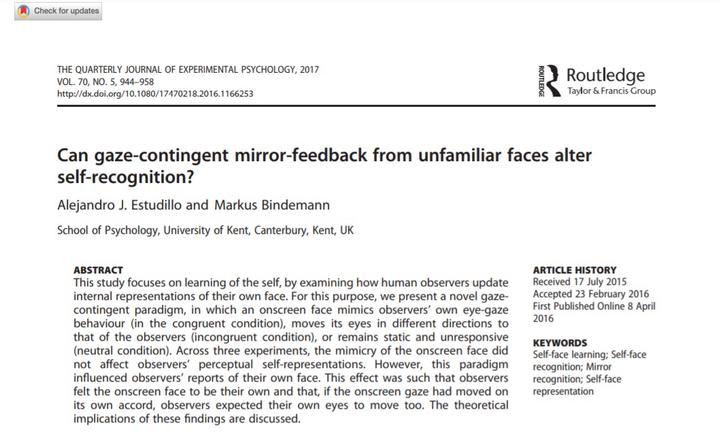
Abstract
This study focuses on learning of the self, by examining how human observers update internal representations of their own face. For this purpose, we present a novel gaze-contingent paradigm, in which an onscreen face mimics observers' own eye-gaze behaviour (in the congruent condition), moves its eyes in different directions to that of the observers (incongruent condition), or remains static and unresponsive (neutral condition). Across three experiments, the mimicry of the onscreen face did not affect observers' perceptual self-representations. However, this paradigm influenced observers' reports of their own face. This effect was such that observers felt the onscreen face to be their own and that, if the onscreen gaze had moved on its own accord, observers expected their own eyes to move too. The theoretical implications of these findings are discussed.